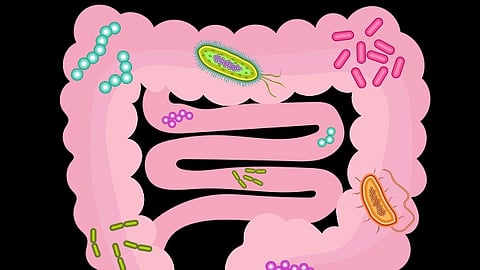The microbiome of urbanized humans has apparently become less diverse than that of people living rurally due to the looming extinction of three newly discovered species in the microbiota. Consequently, this has foiled the ability to digest cellulose fibre, a vital component boosting overall digestive health, especially in city dwellers, according to reports from a new study published in the journal Science.
The newly discovered cellulose-degrading ruminococcal gut bacteria — Candidatus Ruminococcus primaciens, Ruminococcus hominiciens and Ruminococcus ruminiciens — assemble functional multi-enzymatic cellulosome systems that degrade crystalline cellulose fibre. The production of cellulosomes puts Ruminococcus at the forefront of the fibre-degradation cascade that supports a healthy gut microbiome.
Explaining the complexity involved in degradation of cellulose, Edward Bayer, co-author and cellulosomes expert professor commented, “It’s no easy task to degrade cellulose — few bacteria can do it. Cellulose is difficult to digest because it is insoluble. Fiber in the gut is like a tree trunk in a swimming pool — it gets wet, but it does not dissolve. Bottom line, cellulosomes turn fiber into sugars that feed an entire community, a formidable engineering feat.”
“Throughout human evolution, fiber has always been a mainstay of the human diet,” adds lead researcher Sarah Moraïs of the Ben-Gurion University (BGU), Israel. “It is also a main component in the diet of our primate ancestors. Fiber keeps our intestinal flora healthy.”
Evolution of the gut microbiome
The study investigated the bacterial species that are found in the human gut microbiota and capable of degrading complex cellulosic polysaccharides to understand their ability to adapt to varying lifestyle conditions and diets.
The researchers also considered parameters such as the prevalence and abundance of these species across diverse human populations, as well as mammalian species, to obtain insights into their evolution and trajectory.
The newly identified species were shown to have distinct host preferences. Ruminococcus hominiciens is predominantly found in the microbiome of humans and especially great apes, whereas Candidatus Ruminococcus primaciens was primarily found in the microbiomes of ancient humans and other non-human primates.


